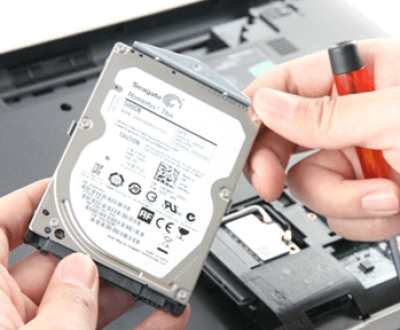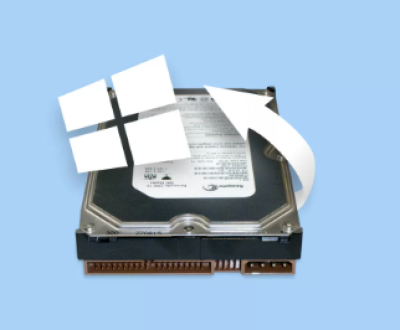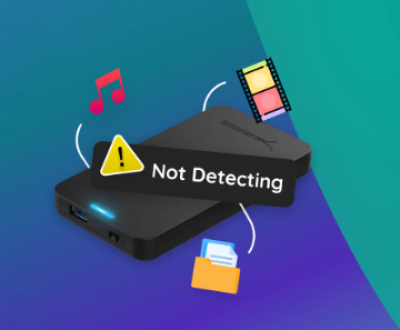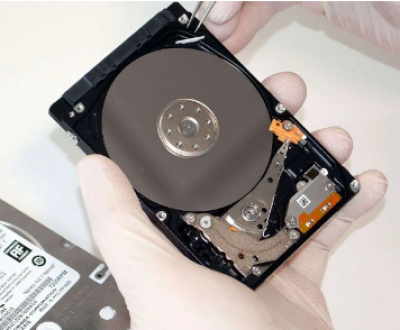This paper delves into the intricate world of hard drive recovery in San Jose. It explores the various reasons for hard drive failures, the different types of hard drives, and the techniques and technologies used in the recovery process. Additionally, it provides an overview of the hard drive recovery services available in San Jose, including the factors to consider when choosing a recovery service provider. The aim is to equip readers with a comprehensive understanding of hard drive recovery in the San Jose area, enabling them to make informed decisions when faced with a hard drive failure.
1. Hard drive recovery
They store vast amounts of data, from personal photos and videos to important business documents and financial records. However, hard drives are not immune to failure, and when they do, the loss of data can be devastating. This is where hard drive recovery services come in. In San Jose, a hub of technology and innovation, there is a high demand for reliable hard drive recovery services. This article will explore the various aspects of hard drive recovery in San Jose, from the causes of hard drive failures to the recovery process itself.

2. Types of Hard Drives
2.1 Mechanical Hard Drives (HDDs)
Mechanical hard drives are the traditional type of hard drive. They consist of a spinning disk (platter) coated with a magnetic material, a read/write head that moves over the platter to read and write data, and a motor that spins the platter. HDDs are known for their large storage capacities and relatively low cost per gigabyte. However, they are also more prone to mechanical failures, such as head crashes, where the read/write head comes into contact with the platter, causing damage to the data.
2.2 Solid State Drives (SSDs)
Solid state drives are a newer type of hard drive that use flash memory to store data. They have no moving parts, which makes them more reliable and less prone to mechanical failures compared to HDDs. SSDs are also faster, with quicker read and write speeds, which can improve the performance of a computer. However, SSDs are more expensive per gigabyte than HDDs, and they can also suffer from data loss due to issues such as wear leveling, where the flash memory cells wear out over time.
3. Causes of Hard Drive Failures
3.1 Physical Failures
Physical failures are one of the most common causes of hard drive failures. These can include mechanical failures, such as head crashes, motor failures, and platter damage. Physical damage to the hard drive, such as dropping or impact, can also cause the drive to fail. In some cases, physical failures can be repaired, but it often requires specialized equipment and expertise.
3.2 Logical Failures
Logical failures are caused by issues with the file system or software on the hard drive. These can include corruption of the file system, virus or malware infections, and accidental deletion of files. Logical failures can often be resolved using data recovery software, but in some cases, more advanced techniques may be required.
3.3 Electrical Failures
Electrical failures can occur due to power surges, brownouts, or other electrical issues. These can cause damage to the hard drive’s electronics, such as the controller board, which can prevent the drive from functioning properly. In some cases, electrical failures can be repaired by replacing the controller board, but it is important to note that this should only be done by a qualified technician.
4. Hard Drive Recovery Techniques
4.1 Software-Based Recovery
Software-based recovery is the most common method of recovering data from a hard drive. There are many data recovery software programs available on the market, both free and paid. These programs work by scanning the hard drive for lost or deleted files and attempting to recover them. However, software-based recovery is only effective for logical failures, and it may not be able to recover data from a physically damaged hard drive.
4.2 Physical Recovery
Physical recovery is a more complex and specialized process that is used to recover data from a physically damaged hard drive. This may involve opening the hard drive in a clean room environment, replacing damaged components, and using specialized equipment to read the data from the platter. Physical recovery requires a high level of expertise and specialized equipment, and it is often more expensive than software-based recovery.
4.3 Forensic Data Recovery
Forensic data recovery is a specialized type of data recovery that is used in legal and investigative cases. It involves the recovery of data from a hard drive that has been deleted, encrypted, or otherwise altered. Forensic data recovery requires a high level of expertise and specialized tools, and it must be conducted in a way that preserves the integrity of the data for use in court.
5. Hard Drive Recovery Services in San Jose
5.1 Professional Data Recovery Companies
There are many professional data recovery companies in San Jose that offer a wide range of hard drive recovery services. These companies typically have experienced technicians and state-of-the-art equipment to handle both logical and physical hard drive failures. They may also offer a free evaluation of the hard drive to determine the extent of the damage and the likelihood of data recovery.
5.2 Computer Repair Shops
Many computer repair shops in San Jose also offer hard drive recovery services. While these shops may not have the same level of expertise and specialized equipment as professional data recovery companies, they can often handle simple logical failures and may be a more affordable option for some customers.
5.3 DIY Data Recovery
There are also some DIY data recovery options available for those who are comfortable working with computers. However, it is important to note that DIY data recovery can be risky, especially if the hard drive is physically damaged. If not done properly, DIY data recovery can cause further damage to the hard drive and make it more difficult or impossible to recover the data.
6. Choosing a Hard Drive Recovery Service Provider in San Jose
6.1 Experience and Expertise
When choosing a hard drive recovery service provider in San Jose, it is important to look for a company with experience and expertise in the field. A company that has been in business for several years and has a team of experienced technicians is more likely to be able to handle a wide range of hard drive failures and recover your data successfully.
6.2 Reputation and Reviews
It is also important to check the reputation and reviews of the hard drive recovery service provider. Look for a company that has a good reputation in the industry and positive reviews from customers. You can check online review sites, such as Yelp and Google Reviews, to see what other customers have to say about the company’s services.
6.3 Data Security and Privacy
When entrusting your hard drive to a recovery service provider, it is important to ensure that your data is secure and private. Look for a company that has strict data security and privacy policies in place and that uses encryption to protect your data during the recovery process.
6.4 Cost and Turnaround Time
The cost and turnaround time of the hard drive recovery service are also important factors to consider. While you don’t want to choose a company based solely on price, it is important to find a company that offers competitive pricing. Additionally, you want to choose a company that can provide a reasonable turnaround time for the recovery of your data.
7. Prevention of Hard Drive Failures
7.1 Regular Backups
One of the most effective ways to prevent data loss due to hard drive failures is to perform regular backups of your important data. You can use an external hard drive, a cloud storage service, or a combination of both to backup your data. By regularly backing up your data, you can ensure that you have a copy of your important files in case your hard drive fails.
7.2 Proper Maintenance
Proper maintenance of your hard drive can also help to prevent failures. This includes keeping your computer clean, avoiding overheating, and using a surge protector to protect your hard drive from electrical damage. Additionally, you should avoid moving your computer while the hard drive is in use, as this can cause physical damage to the drive.
7.3 Monitoring and Early Detection
Monitoring the health of your hard drive can help you to detect potential problems early and take steps to prevent a failure. There are many tools available that can monitor the health of your hard drive, such as SMART (Self-Monitoring, Analysis, and Reporting Technology) tools. By regularly checking the health of your hard drive, you can identify any potential issues and take steps to address them before they become a problem.
About us and this blog
Panda Assistant is built on the latest data recovery algorithms, ensuring that no file is too damaged, too lost, or too corrupted to be recovered.
Request a free quote
We believe that data recovery shouldn’t be a daunting task. That’s why we’ve designed Panda Assistant to be as easy to use as it is powerful. With a few clicks, you can initiate a scan, preview recoverable files, and restore your data all within a matter of minutes.
Subscribe to our newsletter!
More from our blog
See all postsRecent Posts
- How to recover data from portable hard drive 2025-07-10
- How to recover data from a broken hard drive 2025-07-10
- How do i recover files from a formatted hard drive 2025-07-10

 Try lt Free
Try lt Free Recovery success rate of up to
Recovery success rate of up to









